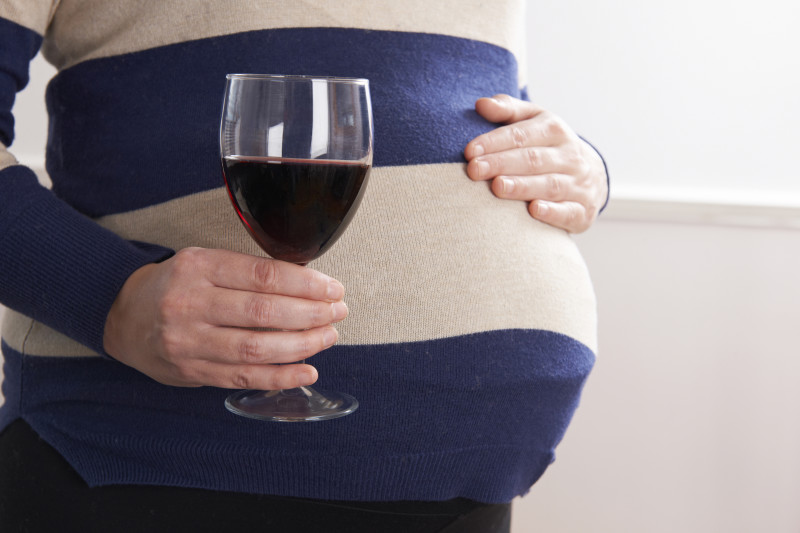As if you need another reason to avoid alcohol during your pregnancy, here’s a new one:
Tossing back even only a few drinks when you’re expecting might increase the risk of alcoholism in not only your child but your grandchildren as well, suggests a new study, whose authors say is the first to look at the effect of alcohol consumption during pregnancy on generations that weren’t directly exposed to it.
“This paper is the first to demonstrate trans-generational effects of alcohol consumption during pregnancy on alcohol-related behavior in offspring,” Nicole Cameron, who led the study, said in a press release from Binghamton University, where she is an assistant professor of psychology.
Granted, Cameron and her coauthor saw this effect in rats, not people, but you can imagine how much more difficult and time-consuming it would be to study multiple generations of people. For starters, the rat gestation period is only 3, 3 ½ weeks. On top of that, the lifespan of a rat is only about 1/25th that of a human.
The scientists gave pregnant rats a daily dose of ethanol alcohol equivalent to a glass of wine on days 17-20 of gestation, which in rat time is equal to the second trimester in humans. The researchers then tested the rats’ offspring and their “grand-offspring” (a.k.a. grand babies) to see whether they preferred to drink water or ethanol, the main type of alcohol in alcoholic beverages.
They also tested the male pups’ (yes, baby rats are called pups) sensitivity to alcohol. This is how they did that: They injected the pups with a big dose of alcohol, which left them passed out drunk on their backs. The scientists then measured how long it took them to come to their senses and upright themselves onto all four paws.
According to the study authors, 10% to 15% of pregnant women in the United States drink some alcohol. The subject has been in the news recently because of a new report from the Centers for Disease Control and Prevention. The problem, according to the CDC, is that a developing baby can be exposed to alcohol before a woman knows she’s pregnant (I’m pretty sure I had a glass of wine before I discovered I was pregnant with one of my daughters). In fact, the CDC estimated that 3.3 million U.S. women aged 15 to 44 were at risk every month for unknowingly exposing their fetus to alcohol because they are drinking and sexually active and don’t use birth control. The CDC went on to recommend that women should stop drinking when they stop using birth control, which ignited a controversy in the news media.
Besides the physical, behavioral and learning problems in children with fetal alcohol spectrum disorders, previous research in humans has shown that people exposed to alcohol in the womb or at a very young age have an increased risk of alcohol abuse, and rat studies seem to corroborate those findings, the authors of the new rat study write in the journal Alcoholism: Clinical and Experimental Research. One of those studies found that teens whose mothers downed three or more alcoholic beverages while pregnant were more likely to have an alcohol use disorder than teens whose mothers didn’t drink while pregnant, the researchers note.
Cameron and her collaborator, Michael Nizhnikov, an assistant professor of psychology at Southern Connecticut State University, recently received a grant from the National Institute on Alcohol Abuse and Alcoholism to continue their research on the effect of consuming alcohol while pregnant on future generations. They plan to breed male and female rats that were both exposed to ethanol in the womb and then look at alcohol consumption and sensitivity in the offspring and grand-offspring.

